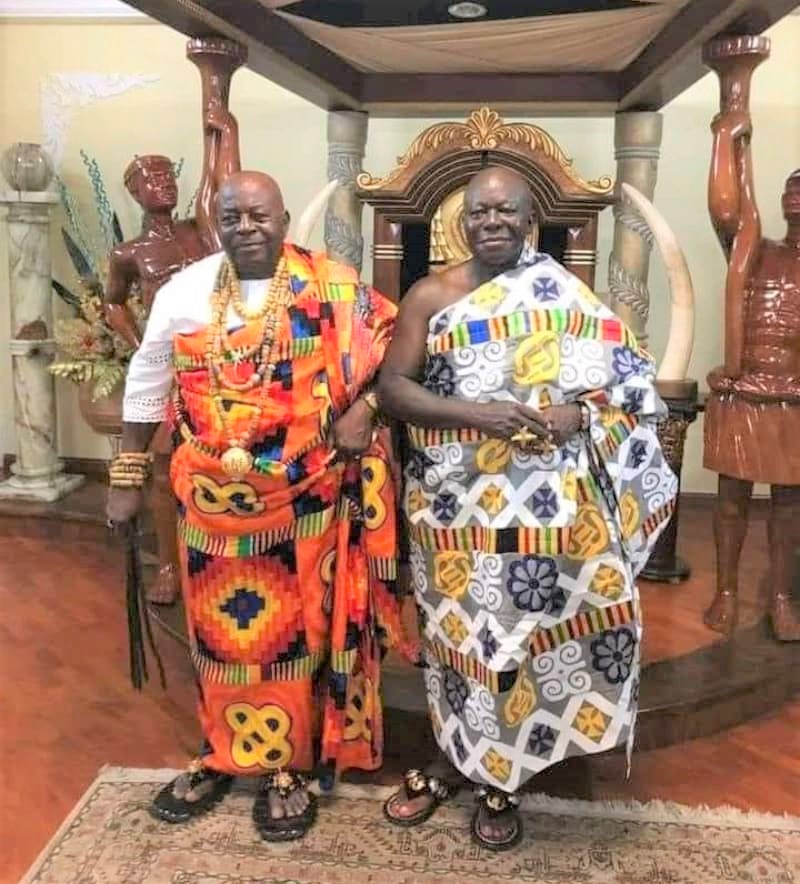A News feature By Maxwell Awumah
Ho, Nov 5, GNA – The Hogbe park, the revered venue for the age-old festival of the people of Anlo land is expected to remake history when the event plays host to all special invitees to the 2022 meeting.
The festival will rekindle traditional unity and bonding and forge new traditional alliances among some of the four most prominent kingdoms in the country.
Otumfuo Osei-Tutu II, the Asantehene, representing the Asante kingdom and his retinue of chiefs is expected this Saturday to join the chiefs and people of the 36 states of Anlo to celebrate their annual traditional festival, Hogbetsotsoza.
Daasebre Akuamoah Agyapong II, the Kwahuhene, representing the Kwahu kingdom and King Tackie Teiko Tsuru II, the Ga Mantse, the symbol of the Ga Kingdom are also expected to be guests at the famous festival.
The festival also known as Hogbeza, which commemorates the legendary exodus of the Ewe-Dogbo folks from Notsie in present-day neighbouring Togo, is returning this year after its suspension in 2020 and 2021 in compliance with COVID-19 protocols.
The presence of the Asantehene would rekindle the celebration of the age-long relationship between the Anlo State and the Asanteman while that of the Kwahuhene and Ga Mantse would help forge a bond with the two kingdoms as part of the bigger objective of using the Hogbeza platform to foster unity, peace and national cohesion.
Daasebre Osei Bonsu II, Mamponghene represented the Asantehene at the 2019 Hogbetsotso Festival at Anloga after Togbi Sri III, the Awoamefia of Anlo visited the Manhyia Palace in Kumasi for the 2018 Akwasidae.
Anlo -Ewe and Asante relationship
The Anlo Ewes remained one of the closest allies of Asantes just like Dagombas, Nzemas and the Akwamus with the two sides supporting each other in times of war.
The relationship between the two parties, which took the form of military alliance dates to the mid-1750s of the 18th century.
The Asantehene during the celebration of Akwasidae, which was attended by Togbi Sri III, the Awoamefia of Anlo, told the gathering that those politicians, who did know the treaty between the Anlos and the Ashantis would try hard but fail to place a wedge between them.
He said the claim that Ewes, particularly, the Anlo and Asantes are enemies, was a concoction made by post-colonial politicians to divide the people to win votes.
The bonding is inseparable even today, a royal Anlo Ewe can easily form part of the Asantehenes circle to perform rituals in the sacred stool house during Akwasidae or Odwira.
Asantehene Kofi Karikari presented a sword to Awadada Axorlu I, the military commander of Anlo to seal the alliance between Asante, Anlo and Akwamu.
The sword is still preserved today and is among the regalia of the Kaklalu Stool of Anlo.
It is this strong alliance that made Asantes accept Anlo Ewes to settle in Kumasi in large numbers and even have a particular place in the city named after them, ‘Anloga Junction.’
The old Asante-Anlo alliance still stands today. Asantehene would strengthen this alliance by setting foot on Anlo land.
Hogbeza is celebrated every first Saturday in November at Anloga, the traditional and ritual capital of Anlo State and is usually characterised by a display of rich tradition and culture with patrons treated to a variety of drumming and dancing, including the ever popular “agbadza”, “atsia” and “misego” or “husego”, the incorporated dance style of the backward movement of the people during their exodus from Notsie.

GNA